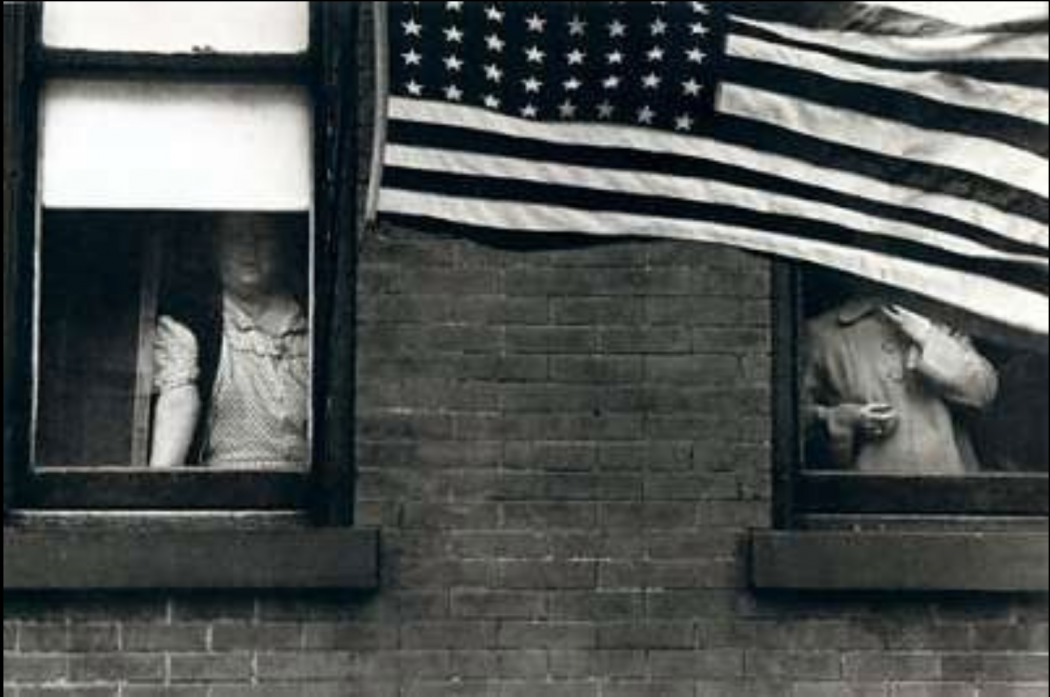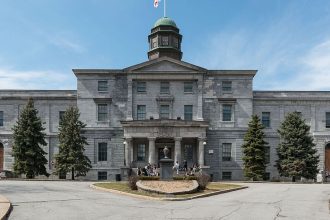As part of a series called “The Academics,” The Bull & Bear is sitting down with beloved professors from a variety of departments, learning about them and gaining insight on the classes they teach. In the midst of course selection period, we hope these interviews add dimension to your schedule and get you excited (or just decided) about the year ahead.
The Bull & Bear: Okay, so first off, where are you from? What was your journey like through undergrad and graduate school?
Leonard Moore: Well, I’ll start by talking about how I got interested in history, which goes back to my undergraduate days. I grew up in Northern California. In high school, I was a good student, but the most important thing to me was impressing the football coach. I didn’t give a lot of thought to where I was going to school. I came from a family of seven brothers and sisters, so the University of California system was the logical, economic choice. Looking back, I feel extremely lucky to have had access to one of the world’s great public universities.
B&B: Around what years are we talking?
LM: This was during the early 1970s. I ended up going to the Davis campus, because that’s where most of my friends were going. I had no idea what I was going to study, but I remember vividly one day, during orientation, I parked my bike under a tree and took out the course catalogue. I thumbed through it and remember stopping at the history department, and wondering what it would be like to study history.
One of the first classes I signed up for was the first part of the Western Civilization survey. About two weeks into the class, I realized that for the whole lecture, I had been sitting literally on the edge of my seat. I was so fascinated, and, also, in a way, almost angry over how little I knew about all the interesting things that had happened in the world. So, at Davis, I ended up studying history and political science with the goal of law school in mind. But I loved history.
B&B: So, when did history change from a passion to a career?
I took American history in my last year and it changed my life.
LM: I was speaking to one of my friends one day about law school applications, and she said, “Yeah but you really love history.” I said sure, but the idea of going to graduate school in modern European history seemed out of the question because I didn’t have the necessary language skills. She suggested American history, I shrugged it off, thinking it would be dull by comparison to the other things I’d been studying. Her reaction was something along the line of “fine, be and idiot, don’t even try to do what you love.” She was wise; she basically shamed me into broadening my horizons.
I took American history in my last year and it changed my life. I realized that American history was just as exciting to me, and I was particularly interested in the emerging trend of studying history through the experiences of ordinary people. So I soon jettisoned all the law school applications and ended up in grad school at UCLA.
When I was in grad school, most of the people in my program dropped out because of the crisis in the job market at the time. They went off to law school and other places. History was too important for me to consider that option. I never had a “Plan B.” I felt like I would have crawled over broken glass to be a historian and to teach history.
B&B: So, you’re in UCLA, working toward your PhD. How did you narrow the focus of your studies to something specific in American history?
LM: One of the things that fascinated about modern Europe had been fascism. And it happened that UCLA had one of the leading authorities on the massive Ku Klux Klan movement in the US during the 1920s. I worked with him and ended up writing a successful dissertation on the Klan in Indiana, the state that was generally regarded as the epicentre of the Klan movement.
I never had a “Plan B.” I felt like I would have crawled over broken glass to be a historian and to teach history.
B&B: Those findings turned out to be your book, Citizen Klansmen, right?
Yeah, that became my book, and it made me one of the lucky few who was able to find work as a historian.
B&B: Was that work at McGill, or somewhere else?
LM: No. Before I came to McGill, I did post-doc work at Caltech. I was there for three years, and then I taught at Reed College, a liberal arts institution in Portland, Oregon for one year. From there, I came to McGill, where I’ve been since 1991.
B&B: So, now you’re at McGill. Would you say it took you a while to find your footing in the classroom, or did you come in with a certain amount of confidence?
LM: Well, by the time I arrived here, I had been teaching for ten years – during most of my time as a grad student I was a part-time instructor at one of the state colleges in Los Angeles. What I was unprepared for was how much interest there would be in US history here at McGill. In my first year, as only the third US historian in the department, my courses had 70 or 75 students. The next year the numbers reached about 150, and by the third year, 220 or so. It was overwhelming at times, but right away it became clear teaching here was a special experience. The students were incredibly interested and incredibly interesting at the same time.
One of the first things I saw when I came here was that it seemed that no one had ever taught anything about race and ethnicity in the United States.
B&B: And have any of those original courses that you taught carried through, or have you changed them up?
LM: Most of my courses have evolved over the years and I’m always adding new seminar courses. One of the first things I saw when I came here was that it seemed that no one had ever taught anything about race and ethnicity in the United States. So I knew that I could teach a course on that subject in the late 19th and early 20th centuries, and I thought it was important to do that. One of the other courses I put on the books right away was a course on the US since World War II—a standard upper-level course in US institutions. But it got to be that there were so many things to cover in that period that it started to feel like a survey course. Eventually, I split it into a two-semester sequence from 1940-65, and then from 1965 to the present. I’m teaching that ’65-present course now.
B&B: What would you say is the most important class you teach or have taught?
LM: After the Post-World War II course, the students would often tell me that the parts or the course they found most interesting were those that focused on civil rights. Eventually I took my original course about race and ethnicity and turned it in a slightly different direction, bringing in women’s rights and civil rights issues. Over the years, I developed a two-semester sequence on civil rights history: one from 1877-1940, and another one from 1940-present. I would say that I’ve always felt a responsibility to make sure those things are taught at our university and they have felt like my most important classes.
Every time I walk into a classroom here—and I’ve taught in many different places—I feel a kind of electricity in the air, an intellectual excitement coming from the students about what we’re going to talk about that day.
B&B: Outside of the areas of interest that you’ve cultivated over the years, do you feel yourself being drawn to anything new?
LM: I would say that the thing that keeps me passionate about what I teach are the McGill students. I don’t teach the same things every year, because that would drive me nuts. Instead, I rotate the courses that I teach, and the thing that always keeps it so rewarding and so fascinating is the intellectual energy that our students bring into the classroom. Every time I walk into a classroom here—and I’ve taught in many different places—I feel a kind of electricity in the air, an intellectual excitement coming from the students about what we’re going to talk about that day. For me, it’s the interchange with the students that always makes it interesting.
B&B: Speaking of the classroom, do you feel like you have one specific class-time memory that stands out as significant?
LM: There’s one moment that really stands out. It was a question from a student, and it happened in the first year that I was teaching at McGill. It was in the course dealing with racism in the late 19th and early 20th centuries, which covered everything from the writing of the Jim Crow laws, to the founding of the NAACP, to the fight for suffrage, to Indigenous peoples’ rights. On the last day of class I had given my concluding lecture, and at the end, a guy in the back of this 75-person lecture room raised his hand. In a very polite but powerful way, he said, “I’d like to ask you a question. I’m very sincere about this and I don’t mean to insult you in any way, but I’ve been listening to everything you’ve said this semester, and my question is, Are you proud to be an American?”
The question just blew me out of the water. That is not a question anyone in the United States would have ever asked me. And it showed me that I was now in a different environment. I was teaching to a different group of students outside the United States, and I don’t think I had really come to grips with that fact until that moment.
B&B: Are you proud to be an American?
LM: When this guy asked me that question, I initially had a hormonal response. The first thing that flashed through my brain was a kind of generic image of my brother and me, sitting in Candlestick Park, where our beloved baseball team, the San Francisco Giants, used to play. And I had this image of our favourite player, Willie Mays, settling under a fly-ball and catching it in centre field. My first thought was about my home, my family, the things that had shaped my life. How could I not be proud of Willie Mays, you know?
The question just blew me out of the water. That is not a question anyone in the United States would have ever asked me.
So I said to the student, “We’ve studied some very difficult things in this course, and I consider it my responsibility to make sure that everyone knows about this history. It’s part of a long struggle to try to make real the ideals of American democracy, which I do believe in. I am proud to be a countryman of WEB DuBois and Ida Wells and many of the other people we have talked about in this course, who have shown Americans and people around the world the real meaning of freedom.”
So, I am proud to be an American, but thinking critically about the United States is an important part of that.








